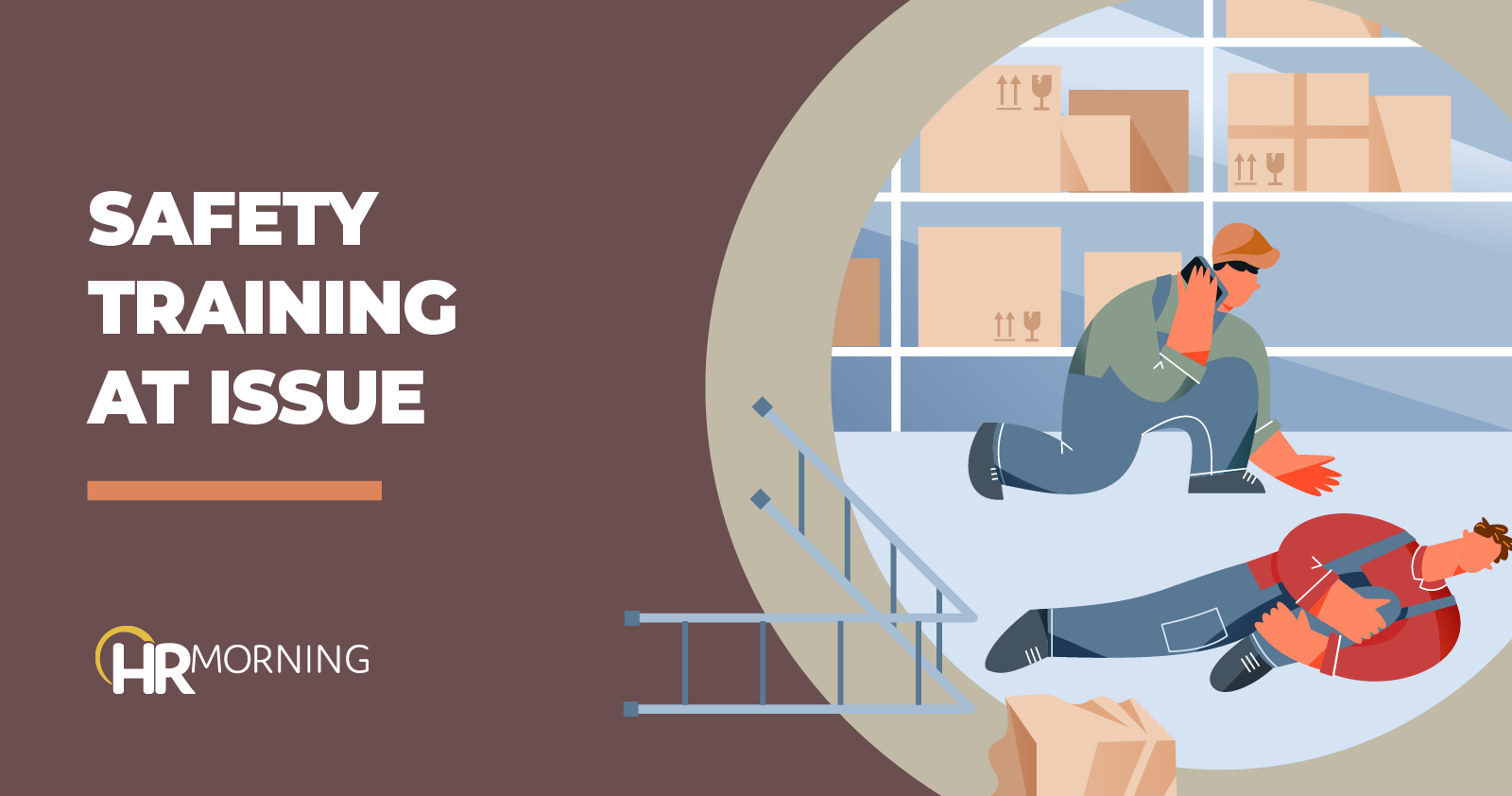A federal court in Texas addressed safety training claims raised by a Home Depot worker who was injured while using a ladder to retrieve a bag of firewood.
Notably, the court rejected a claim that the store did not provide proper training or safety instruction on how to complete the task.
Here’s what happened.
Ice storm played a role injury
Maria Mejia Ruiz was working at a Texas Home Depot store when she sustained an injury to her hand and wrist.
On the day Mejia got hurt, there was an ice storm and only 10 employees were on duty – instead of the usual 25 to 30. The store was also busy at the time.
Mejia said that when a customer asked for help retrieving a 25-pound bag of firewood, she asked her supervisor for assistance. The supervisor allegedly told her that she “had to” get the firewood because no one was available to help.
Mejia then tried to get the job done, using what the court’s decision calls a “ladder” while explaining that it is more accurately described as “a movable staircase with a standing platform at the top.”
She says that the ladder moved while she was getting the firewood, causing the firewood to shift in her hands. As a result, she hyperextended her hand and wrist.
Lawsuit alleges lack of safety training
Mejia sued Home Depot for negligence, specifically alleging that the employer did not:
- Train her properly and provide her with adequate safety instruction
- Give her reasonably safe instrumentalities (equipment) to work with, and
- Provide her with adequate assistance.
Home Depot filed a motion for summary judgment.
First, the court considered Home Depot’s argument that it did not owe Mejia a duty to provide training or safety instruction on how to retrieve the bag. Home Depot said no duty was owed because the danger associated with the task was “common knowledge” or was “already appreciated” by Mejia.
The dangers associated with lifting heavy objects and working at heights are “amongst the most commonplace risks in daily life,” the employer said.
Was the danger too common to require training?
The court said that although employers have a continuous duty to train employees regarding safety, no specific safety rules are needed if the dangers involved with the work “are obvious or are of common knowledge and fully understood by the employee.”
There is no duty to train with respect to dangers that “are commonly known or already appreciated by the employee,” the court explained.
Applying this logic, the court ruled that Home Depot did not owe Mejia a duty to train and provide adequate safety instruction regarding the task of using a ladder to retrieve a 25-pound item.
The risks associated with the tasks “would have been fully understood and appreciated by a home improvement store employee or customer.”
The court reached this result even though:
- Mejia said the ladder shifted
- A department supervisor testified that the automatic brakes on those ladders wear out, requiring employees to engage a manual brake, and
- Mejia said she had never used the ladder before and did not know it had a manual brake.
Decision says safety training was provided
Even if Home Depot did have a duty to train or provide safety instruction, the court said, it did so, the court ruled.
A store safety rep testified that Home Depot provides monthly video training, and Mejia participated in it while also receiving orientation training.
All was not lost for Mejia, however, because the court refused to grant summary judgment to Home Deport on her claim that the store did not provide her with safe equipment to do the job. A fact issue is present as to the adequacy of the ladder, it decided.
The court also preserved Mejia’s claim that the store did not provide her with adequate assistance to do the job.
Home Depot admitted the task is a two-person job, the court pointed out, and the evidence permitted a finding that it involved an increased risk of injury.
The message for HR
Home Depot dodged one safety training bullet in this case, but the lawsuit continues as other claims survived. The company’s legal costs are likely to continue to pile up as the case continues to progress.
Whether it was legally required or not, more specific and intensive safety training could have avoided the whole mess for the employer.
The message: There is no substitute for providing comprehensive, ongoing safety training for employees.
Ruiz v. Home Depot U.S.A., Inc., No. 3:22-CV-2266-D, 2024 U.S. Dist. LEXIS 18498 (N.D. Tex. 2/2/24).


